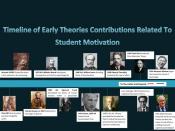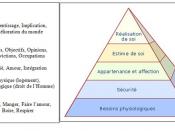Theories of motivation to work have passed through many stages, influencing and being influenced by the prevailing management ideologies and philosophies of each era. Although we can trace a sequence to this development, it does not mean that the old theories have died. There are employers and managers and employees today adhering vigorously to one or other of them, basing their belief not on research or empirical evidence but on an almost ideological framework of values and assumptions. These help them understand their own role and those of others around them. The poor quality of comprehension about how reward systems affect behavior can be blamed partly on the confusion generated by so many conflicting theories of motivation and conflicting case examples.
During the early part of this century the predominant theory about management was the classical or "scientific" management approach. This theory portrayed working people as making rational economic calculations and following a consequent logical pattern of behaviour at work.
Employers, who accepted this theory, believed that their workforce was driven by the desire to earn the most money possible. Elaborate financial incentive schemes were developed based on work measurement using stop-watches to determine how long each element of each task should take. The assumption was that people being motivated primarily by money, would maximize their work output if they were offered the incentive of extra money for each increment of work.
Fortunately for us, there have always been researchers putting theories to the test. When they found that behavior at work could not be explained by reference to the pure desire to earn as much money as possible, the first reaction was not to abandon belief in the primacy of money, but to look for intervening variables. A new theory was put forward proposing that the reason why some...


